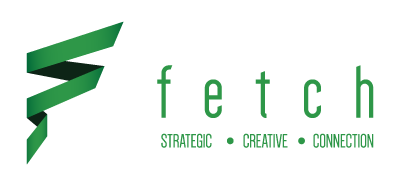
Have you ever read the book Eats, Shoots & Leaves? I actually read it on my honeymoon while on the beach relaxing one day. It’s like a mini soap opera digest of the history and proper usage of the comma. I’m sure you’re now thinking “Wow – she has an exciting life reading about punctation on her honeymoon!” It actually is a great read, but not because I’m obsessed with the comma. I’m more fascinated with how communications – both written and verbal – can truly affect the course of a relationship even in business. However, I have to give my vote to the question mark as my favorite, and often underused, punctuation mark. Why, you ask? (Well, perhaps you didn’t ask, but this post is about question marks so I do need to throw in a few.)
Growing up through early adulthood, I found myself trying to avoid the question mark. I always assumed it would draw the wrong attention to myself pointing out that I didn’t know much about a particular topic or process. Then in my late 20s, I was blessed with a string of mentors that had mastered the power of the question mark. I now consult other organizations and mentor young salespeople. The “Power of the Question Mark” is a lesson I often pass along – and one I always remind myself of with every networking event I attend, every meeting I have, and every email that I send out.
Here are a couple of the lessons I’ve learned from my friend, the question mark…
Want to get more meetings or expand your network further? It starts with a question.
I have yet to understand why anyone would ever write an email without a question mark, but I see it all the time. I see salespeople trying to get a meeting with a new key contact by stating facts versus asking a question. One of my favorite facts – “I would love to connect with you.” Well isn’t that nice. Thank you. But it still doesn’t get a meeting or close a deal. Both of those actions require questions such as “Would you like to grab coffee this week?” or “Would you be interested in giving to our organization?” These would, of course, get a prompt response back from me such as “Why yes – I would love to grab coffee with you this week as you actually asked me to grab coffee this week.” I often tell salespeople I’m consulting with that not a single one of their emails should be sent without at least one question mark in it. It forces the issue and forms better communication habits.
Want to close more deals? You need to understand your audience better.
Ever been on a date where the person didn’t ask you a single question? I have. Ask me if that guy had a second date. No really – ask me. If it seems to be a common courtesy to ask people questions while on a date, why do we often forget to do this while at a business meeting? Aren’t we trying to get to know the people we’re doing business with, what they desire, and what drives them? I’ve been on the receiving end of emails and meetings with people that are trying to connect with me, get to know me, and/or ask me for help and they don’t ask me a single question; not even a simple “How are you?”. And then there have been times where I’ve been remiss at asking questions because I’ve been too focused on what I thought I needed to say; forgetting there is always a need to ask questions. Better to shorten the amount of time you speak in a meeting and ask good questions to get to know the other person and what they’re actually interested in or looking for in terms of your offerings. Why waste a lot of breath talking about what you can do for someone else when you could just ask them about their pain points to see if your service offerings can solve their challenges?
I could go on and on about the art of asking questions, however, I think it’s best to start off with a simple reminder to make sure you actually ask questions. Questions help you get to know those you are doing business with which can lead to deeper business relationships, bigger network, more closed deals, and better strategies. As Zig Ziglar would always say “You can have everything in life you want if you will just help enough other people get what they want”. And it’s hard to do this if you’re not asking questions of those you communicate with on a daily basis in your business life.
So tell me – what did you think about this post?
